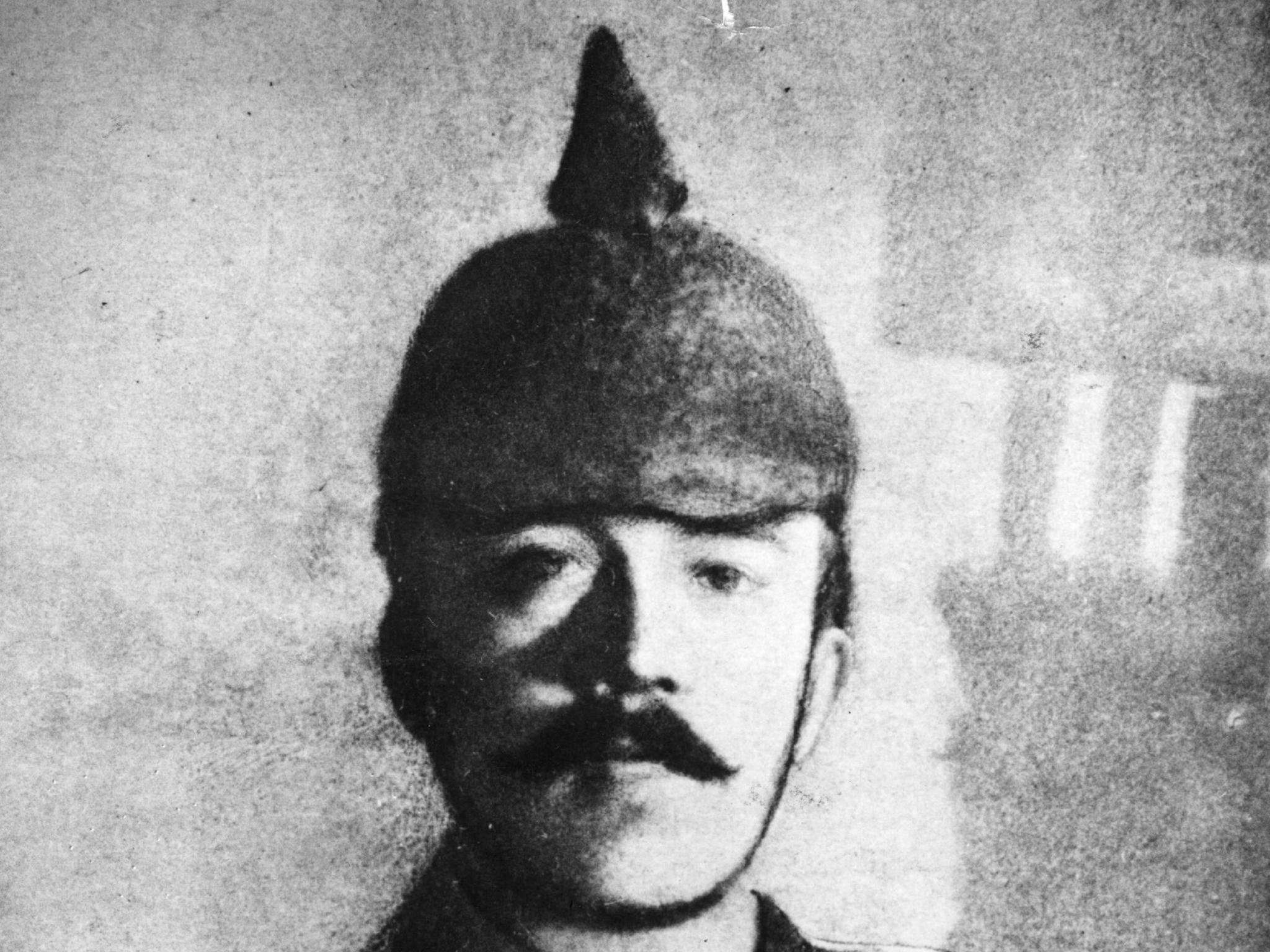The 20th century's worst dictator, future British politicians and a father later send to a concentration camp by the country he fought for were among those who served during the Battle of the Somme.
Here are some of those who fought one of the world's bloodiest battles and lived on to become famous or infamous.
Adolf Hitler: The megalomaniac Nazi dictator was injured fighting for the German Empire on the Somme. Over the years there has been speculation that he suffered a wound to his genitals as well as the leg wound suffered while serving with a Bavarian unit, which gave rise to the legend that he only had one testicle. In a postcard unearthed in 2012 the then 27-year-old soldier wrote of his intention to "report voluntarily for the field immediately" from the hospital in Munich where he was recovering.
Battle of the Somme - in pictures
10 show all Battle of the Somme - in pictures
1/10 1916 British troops go over the top of the trenches during the Battle of the Somme
2/10 1916 The 39th Siege Battery artillery in action in the Fricourt-Mametz Valley Getty Images
3/10 1916 Gas-masked men of the British Machine Gun Corps with a Vickers machine gun during the battle of the Somme Getty Images
4/10 1916 German troops outside their dug outs on the Somme Getty Images
5/10 1916 French soldiers pass through a bombed out area as they advance on the Somme Getty Images
6/10 1916 A French 75cm gun mounted for aircraft use on the Somme during World War I Getty Images
7/10 1916 Canadian troops prepare for the charge over the top at the Battle of the Somme Getty Images
8/10 1916 A heavy shell exploding during the Battle of the Somme Getty Images
9/10 1916 A dug-out at the battlefront on the Somme Getty Images
10/10 1916 Situated in the town of Albert, France, is the famous 'Golden Virgin' leaning over the spire of the church in the centre of the town, where most of the British troops were based prior to the Battle of the Somme Getty Images
Ralph Vaughan Williams: The composer whose work The Lark Ascending is frequently voted Britain's most popular piece of classical music. He enlisted as a private in the Royal Army Medical Corps on New Year's Eve, 1914, the same year he produced the work. He was aged 42. His friend, fellow composer George Butterworth, was killed on the Somme on August 5 1916.
Ralph Vaughan Williams, the composer who wrote "The Lark Ascending" (Hulton Archive/Getty Images)
Otto Frank: Anne Frank's father was the only member of the family to survive the Holocaust. Born in Frankfurt he was drafted into the German Army in 1915 served on the Western Front for the rest of the war, earning promotion to Lieutenant. He moved the family from Germany to Amsterdam in 1933 after Hitler's rise to power and increasing violence and discrimination against Jews, even those who had put their lives on the line for their country.
Somme selfies: long-lost photographs of British soldiers involved in the battle
Harold Macmillan: The British Conservative Prime Minister from 1957 to 1963 was an officer in the Grenadier Guards who was wounded twice during the Somme. He spent the rest of the war recovering and was left permanently affected.
JRR Tolkien: The Hobbit and Lord of the Rings author was an officer in the 11th Battalion, Lancashire Fusiliers. Serving in the difficult northern sector of the Somme battlefield, Tolkien's health eventually suffered. He contracted trench fever at the end of October 1916 and was then sent back to hospital in Birmingham. He was unfit for service for the rest of the war.
Siegfried Sassoon: As a second lieutenant with the 1st Battalion, Royal Welsh Fusiliers, war poet Sassoon witnessed the carnage of July 1 weeks after earning a Military Cross in a daring operation to rescue a soldier in No Man's Land.
The war poet Siegfried Sassoon (Hulton Archive/Getty Images)
Robert Graves: A friend of Sassoon and a fellow war poet who served in the same unit, Graves was wounded in eight places on July 20 in a shell explosion. He was so badly hurt that his family were told he was dead and it was announced in the Times. He described his wartime experiences in Farewell To All That in 1929 and eventually died in 1985, aged 90.
Edmund Blunden: A poet contemprary of Sassoon and Graves, Blunden was physically uninjured by his war service but suffered from "shell shock", now known as Post Traumatic Stress Disorder (PTSD) for the rest of his life. He described the Somme in works including Thiepval Wood.

inoffensive1 on December 24th, 2017 at 21:33 UTC »
Them and three million others. Sometimes I think we forget the sheer scope of the carnage of WW1
Ayy_2_Brute on December 24th, 2017 at 21:18 UTC »
Here he is in his uniform.
And here's his grandson Simon on WWI's influence on Lord of the Rings.
Captain_-H on December 24th, 2017 at 21:10 UTC »
I feel like Tolkien did a better job of channeling that experience in a positive way